SPI LOGISTICS BROKER/SHIPPER OBLIGATIONS, TERMS AND PROVISIONS WHICH ARE INCORPORATED IN ALL SPI LOGISTICS’ CREDIT AGREEMENTS.
SHIPPER OBLIGATIONS.
A. SHIPPER must comply with all applicable laws and regulations governing the safe and secure transportation of food products that will be ultimately consumed by humans or animals (“Food Shipments”), including those required by local, provincial, state and federal laws, regulations, ordinances and rules including, but not limited to, the Food Safety Modernization Act (21 U.S.C. § 2201, et. seq.), the Federal Food, Drug and Cosmetic Act (21 U.S.C. § 341, et seq.) (“FD&C Act”), the Sanitary Food Transportation Act (49 U.S.C. 5701, et seq.), the U.S. Food and Drug Administration’s Final Rule on the Sanitary Transportation of Human and Animal Food (21 C.F.R. § 1.900, et seq.) and all applicable U.S. Department of Agriculture and Food Safety and Inspection Service regulations. (All of the above regulations are referred to herein as the “Food Safety Laws”). SHIPPER is responsible for the recordkeeping obligations of a ‘Shipper” under the Food Safety Laws. SHIPPER represents and warrants that any Food Shipments offered for transportation pursuant to the Agreement are tendered in safe condition for human or animal consumption, as applicable.
B. SHIPPER Written Instructions.
- SHIPPER must provide necessary shipping instructions, including the correct classification of the commodities, any seal or padlock requirements, and properly identify all Goods in the bill of lading or other shipping instructions. SHIPPER will not tender any restricted commodities including, but not limited to, hazardous materials and waste, oversize, or overweight shipments, coiled or rolled products, commodities requiring any special handling, or commodities requiring protection from heat or cold, without properly identifying such shipments and making necessary prior arrangements for transportation.
- If a Food Shipment is covered under any of the Food Safety Laws that prohibit the sale or distribution of unsafe or “adulterated” food, SHIPPER must specify the applicable body or bodies of law, statutes and/or regulations on face of the governing bill of lading for the shipment. At the time of booking, and prior to loading the goods, SHIPPER must further specify in the booking request and on the face of the governing bill of lading all instructions to be followed by the Motor Carriers to maintain the safety of the food, including, without limitation, all temperature control requirements and temperature control documentation requirements, including an operating temperature for the transportation and, when necessary, the pre-cooling phase, all sanitation requirements and sanitation documentation requirements for the Food Shipment, including those for the Motor Carriers’ vehicle and transportation equipment, any design specifications and cleaning procedures (“Written Instructions”). SPI will assist SHIPPER in providing any Written Instructions to the Motor Carriers transporting SHIPPER’s food cargo. SHIPPER, including its consignors and consignees, shall permit the performing Motor Carrier to verify the temperature of Food Shipments prior to acceptance of tender and upon delivery at destination.
- SHIPPER warrants that it will not directly or indirectly interfere with, or attempt to adversely influence, the performing Motor Carrier’s safe operation of equipment including performance pursuant to the federal hours of service regulations.
C. Loading.
- SHIPPER is responsible for ensuring that Goods are properly and safely loaded, supported, blocked, braced, and secured. SHIPPER will be responsible for expenses arising out of any load shift that occurs during transportation due to improper or insufficient loading, blocking, or bracing. If SHIPPER is loading food shipments into the motor vehicles transporting the cargo, SHIPPER is responsible for ensuring that the vehicle or other transportation equipment provided by the Motor Carrier meets the requirements specified in the Written Instructions and are in an appropriate sanitary condition for transporting the food shipments. SHIPPER must also ensure that mechanically refrigerated storage compartments or containers required in the Written Instructions have been adequately prepared to transport any temperature-controlled food being shipped and, if required by the Written Instructions, properly pre-cooled.
- SHIPPER is responsible for checking all empty containers or trailers tendered for loading and rejecting any equipment that is not in apparent suitable condition to protect and preserve the Goods during transportation. Vehicles and other transportation equipment used to transport food shipments will be deemed acceptable to SHIPPER upon loading. SHIPPER’s failure to fulfill the obligations under this section will be considered an act or default of the SHIPPER, and a defense to any cargo claim resulting from the condition of the trailer.
- Unless SHIPPER has requested that SPI arrange for the Motor Carrier to provide driver count services before dispatch and the Motor Carrier performs such driver count services, SHIPPER is responsible for properly counting and recording the number of pieces transported and applying a protective seal to the loaded equipment.
D. Recordkeeping. SHIPPER is responsible for the recordkeeping obligations of a “Shipper” under the Food Safety Laws for all food shipments governed by this Agreement.
E. Dropped Trailers. If SHIPPER requests that SPI arrange for equipment to be dropped at a location for SHIPPER’s convenience and left unattended by Motor Carrier, SHIPPER and its consignors or consignees will not lose, damage, or misuse the equipment and SHIPPER will pay for loss or damage to the equipment occurring during or as a result of such custody, control, possession, or use of the equipment.
CLAIMS
A. Freight Claims: SHIPPER must file claims for cargo loss or damage with SPI within six (6) months from the date of such loss, shortage or damage, which for purposes of the Agreement shall be the delivery date or, in the event of non-delivery, the scheduled delivery date. SHIPPER must file any civil action against SPI in a Court of Law (or commence arbitration) within two (2) years from the date the carrier or SPI provides written notice to SHIPPER that the carrier has disallowed any part of the claim in the notice. Cargo liability for any one shipment shall not exceed $100,000 unless SPI is notified by SHIPPER of the increased value prior to the time of tendering of the shipment with SPI. It is understood that SPI is not a carrier and that SPI shall not be held liable for loss, damage or delay in the transportation of SHIPPER’S property unless caused by SPI’s negligent acts or omissions.
B. Inspection and Loss or Damage to Food Shipments. SHIPPER acknowledges and agrees that the definition of “adulterated” as applicable to Food Shipments shall be that provided in the FD&C Act (21 U.S.C. §§ 342(a)(i)(4), 342(i)). In the event of apparent adulteration of any portion of a Food Shipment, SHIPPER will require its consignee to accept the entire shipment and hold the portion that is apparently adulterated for inspection. SHIPPER warrants that it will at its own expense obtain a reliable inspection of the Food Shipment as soon as possible after delivery by a qualified expert. SHIPPER acknowledges that the performing Motor Carrier will bear no liability for Food Shipments wrongfully refused by SHIPPER without a timely and documented determination by a qualified expert of adulteration. SHIPPER additionally acknowledges that if it fails to provide written instructions, as required above, the performing Motor Carrier will not be liable for loss or damage to Food Shipments deemed adulterated.
C. Mitigating Damages. None of these provisions in any way limit SHIPPER’s obligation to mitigate its damages, including by salvaging all portions of a shipment for which there is a secondary market.
D. All Other Claims. The Parties shall notify each other of all known material details of claims within sixty (60) days of receiving notice of any claims other than cargo loss or damage claims and shall update each other promptly thereafter as more information becomes available. Civil actions, or arbitration, if any, shall be commenced within two (2) years from the date either Party provides written notice to the other Party of such a claim.
HAZARDOUS MATERIALS
SHIPPER shall comply with all applicable laws and regulations relating to the transportation of hazardous materials as defined in 49 CFR §172.800, §173, and § 397 et seq. to the extent that any shipments constitute hazardous materials. SHIPPER is obligated to inform SPI immediately if any such shipments constitute hazardous materials. SHIPPER shall defend, indemnify and hold SPI harmless from any penalties or liability of any kind, including reasonable attorney fees, arising out of SHIPPER’s failure to comply with applicable hazardous materials laws and regulations.
HOMELAND SECURITY
As applicable to each, respectively, SPI and SHIPPER shall comply with federal, state and local Homeland Security related laws and regulations.
INDEMNIFICATION
SPI and SHIPPER shall defend, indemnify, and hold each other harmless from and against any claims, actions, or damages, (excluding cargo loss, damage, or delay) but including payment of rates and/or accessorial charges to carriers, to the extent caused by their respective negligence or willful misconduct. Neither Party shall be liable to the other Party for any claims, actions, or damages due to such other Party’s own negligence or intentional acts. Failure of insurance coverage, for any reason, shall not exonerate either party from its indemnity obligations hereunder. The obligation to defend shall include all costs of defense as they accrue.

